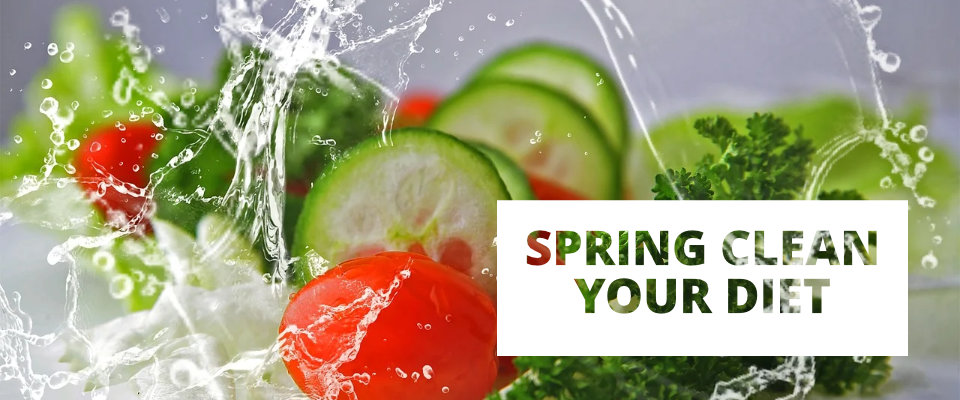Spring Clean your Dietary Habits

There are various theories regarding the tradition of spring cleaning. It might have originated with the Persian New Year when everything in the house was cleaned prior to its arrival. Perhaps it came from the Jewish tradition of finding and eliminating all leavened foods (including crumbs) prior to the arrival of Passover. Maybe it came from the Catholic Church and its edict that churches should be thoroughly cleaned every Maundy Thursday (the day before Good Friday).
Or maybe spring was a great time to clean in cold climates as you could finally open the windows to help remove the dust created from cleaning the house, including overused and filthy fireplaces and chimneys. Regardless, it’s a time for action, change and renewal which could (and should) be applied to the bad eating habits you developed over the long COVID winter.
The first step to spring cleaning your eating habits is to identify both your good and bad dietary habits. In order to accomplish this, you’ll need to keep a food diary for a week or so. Use a calendar-type format to write down everything you eat, when you it eat (including time of day and after or during specific events), and how you were feeling prior to indulging (happy, depressed, tired, stressed, bored etc).
Also include how you ate and under what circumstances (ate seconds quickly and alone while watching Mare of Easttown, for example). Finally, do NOT change your old eating habits during this week just to make your bad habits look less…bad.
Next, highlight what you consider your best and worst habits. Do NOT identify ALL your bad dietary habits as attempting to eliminate them all is an exercise in futility. Good: “I eat fruits and veggies every day.” Bad: “I eat dessert after every meal, including breakfast.” Praise yourself for your good habits and vow to keep them in place.
Then, identify the cues or triggers that precede your bad eating decisions. Such as, “I ate an entire bag of Chips Ahoy cookies after that horrible Zoom meeting with my multiple bosses.” Finally, see if you can identify a pattern to your bad eating habits. Do you usually eat because you’re bored? Are there certain unhealthy items you’re unable to resist? Do you always require a donut, danish or pastry when you have a cup of coffee? Do you always stop at a specific fast food joint on your way to or from work?
Once you’ve identified some of your “questionable” eating habits, you can now work to eliminate or replace them with healthier options. If your bad dietary decisions are preceded by a cue or trigger, perhaps you can eliminate or avoid the trigger. Plan, prepare and eat a healthy dinner prior to watching Mare of Easttown. (In fact, it helps a great deal to plan out your meals daily or weekly so long as you stick to your healthy menu.
Also, if you haven’t watched Mare, I highly recommend it). Substitute a health bar for that donut you eat with your coffee. Eliminate mindless distractions while eating, such as the television. In other words, practice mindful eating. Try to find a non-eating activity to avoid “emotional” eating when stressed or depressed, like mental activities, such as crossword puzzles or sudoku. Continue to eat desserts, just ensure they’re of the healthy variety.
Changing your bad eating habits must begin with identifying, specifically, what they are. And yours will most certainly be different than mine. It’s kind of like an alcoholic finally admitting to that fact before rehab can even begin. You must identify the problem before you can fix it, and what better time than spring to get started?
You must be logged in to post a comment.